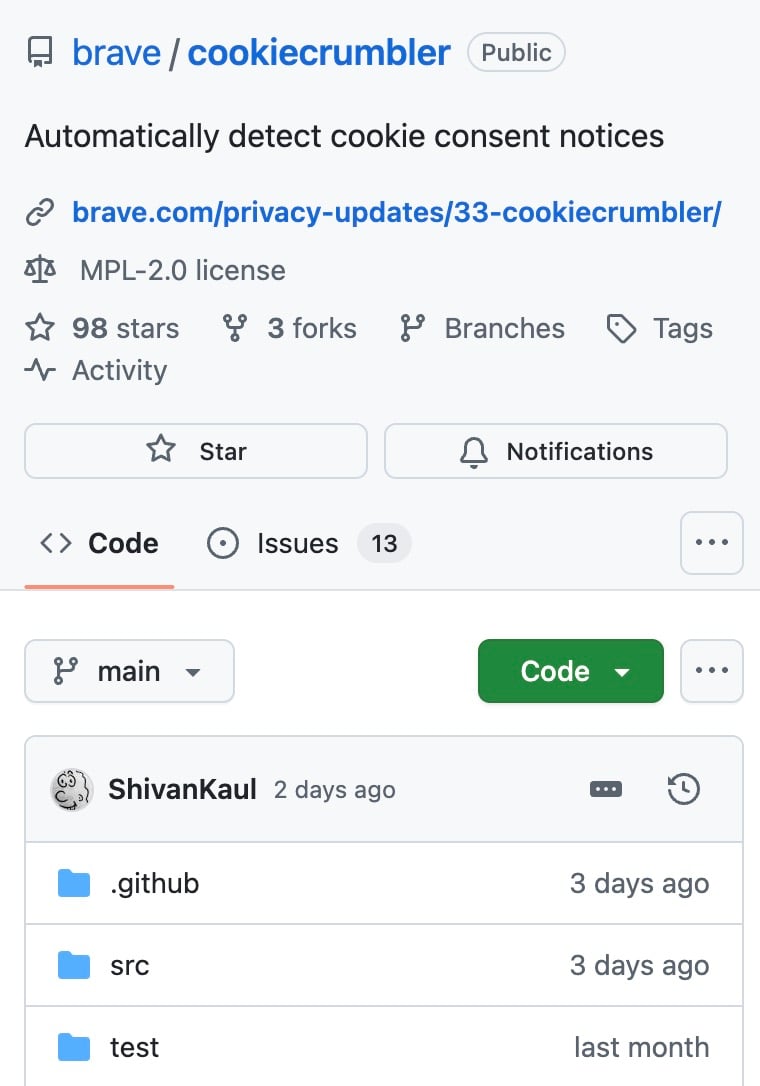Brave has announced the open-sourcing of Cookiecrumbler, a tool designed for “smart” automatic detection of cookie consent notices on websites across the web by deploying open-source LLMs, the Brave Privacy Team announced.
Other than detecting these notices, Cookiecrumbler also suggests fixes. Now developers behind the tool say they are looking at ways of including Cookiecrumbler in the Brave browser – but that this will happen once a full privacy review has been carried out.
Being user-experience “unfriendly” – i.e., annoying – is the least of the problems with cookie consent pop-ups, that are supposed to empower users into choosing how and if they are tracked and profiled.

But Brave says that the notices themselves can be harmful to privacy, citing research stating even when a user chooses to “reject all cookies” – many systems are supposed to ensure that they “still track people.”
Since the privacy-oriented Brave browser blocks third-party tracking by default, the pop-ups become unnecessary there; however, the way they get blocked matters, since some implementations can result in breaking the functionality of web pages, especially when the blocker uses generic rules.
Cookiecrumbler, on the other hand, aims to provide site-specific blocking across the internet and different locations and languages in which cookie consent notices appear – which is why LLMs are used in detection automation as a way to deal with the scale of the job.
Those behind the tool also say that the low cost and efficiency of this approach allows for also using human reviewers, who look for false positives.
Cookiecrumbler detects top websites by using publicly available lists and deploys a crawling script to determine if they use cookie consent notices.
The resulting list of websites that do is then published in the tool’s new GitHub repository.
Other than blocking trackers, Brave also by default blocks the notices. The difference with Cookiecrumbler built-in would be to do this more efficiently through automation, given the extent of the task, and allow detection of new and modified consent pop-ups.
Cookiecrumbler developers say that since its launch at the Ad Filtering Dev Summit in 2024, the tool produces less breakage, and fewer false positives while expanding the number of languages and geographical coverage.










